Living and Learning: British values.
In Living and Learning, we have been discussing the different British values: democracy, individual liberty, rule of law and respect and tolerance. This week, we have focussed on individual liberty and respect and tolerance.

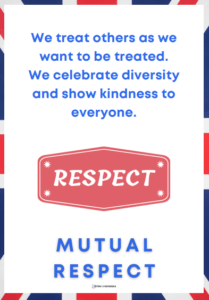
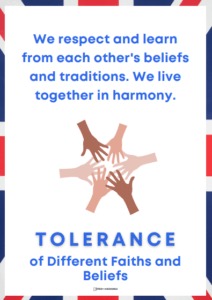
Year 6 answered these questions:
We are all free to do what we want but this has to be within the law.
What would happen if everyone just did their own thing?
What do we have the right to?
We have the responsibility to…
Whilst we have individual liberty as one of our British values, we need to ensure we are showing respect and tolerance of others.
Why is this important?
What would our country be like if people didn’t show this?
Help at home: Discuss how respect and tolerance link to the protected characteristics. How would you answer the questions above?
Watch Us While We Work
This morning, parents and carers joined us for our watch us while we work session. Today we focussed on Feelings First and Reading. Our Feelings First feeling was uncomfortable. The children gave some great scenarios of when they might feel this feeling:
- when you think someone is waving and they are actually waving to someone else behind you
- when you are talking loudly and everyone else goes quiet
- when you tell a joke and no one else laughs
- when you are talking in front of a large group of people
- when you are in public and start speaking to who you think are your parents but it is actually strangers
- when your parents are stood at the back of your classroom watching you work
We discussed how we could regulate this emotion:
- take yourself out of a situation
- speak to a trusted adult or friend
- calm yourself using a technique that works for you (colouring, playing a game etc.)
In our Reading session, we looked at the website Authorfy. Authorfy is free this year to all users due to it being the Year of Reading. In our session, we looked at a 10-minute challenge by Abi Elphinstone (the author of Sky Song). In the challenge, the children were tasked with creating an object which turns into a portal to take their characters into a new world. They needed to draw and write about this moment in their story.
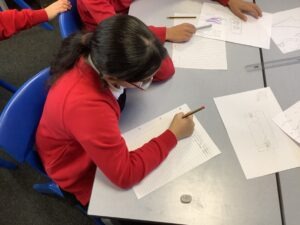
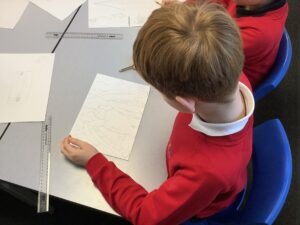
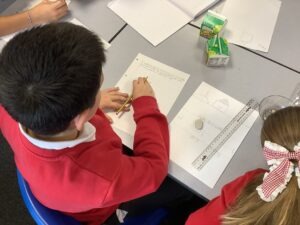
Help at home: Explore Authorfy and watch a 10-minute challenge video.
Forest School
Today, Year 6 LOVED Forest School.













Reminder: Your child NEEDS to bring a change of clothes and shoes (including socks). They were incredibly muddy and wet afterwards and needed warm school clothing to get changed into.
Reading: Viking Boy
This week in Reading, we have been focussing on our new class novel for this term: Viking Boy by Tony Bradman.
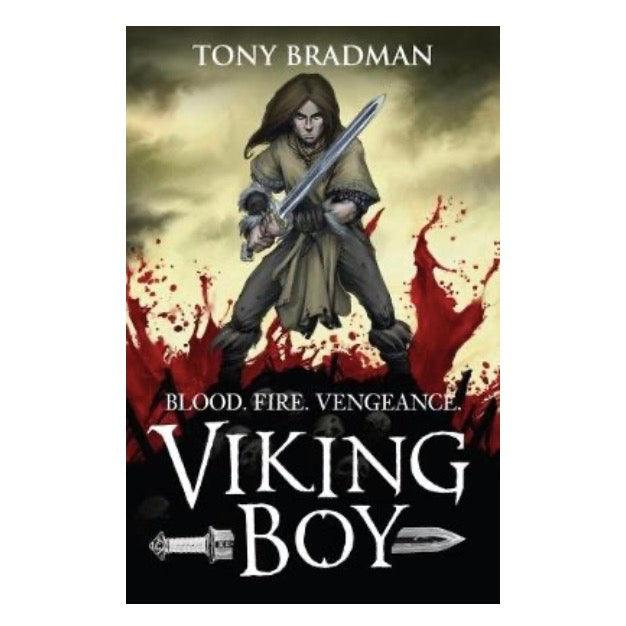

Today, we created Top Trumps cards about the characters that we have met so far. We used our retrieval and inference skills. Retrieval to create a fact file about the person and inference to rate them in each category (strength, bravery, Viking skill, loyalty and importance to the story).


We then played a game of Top Trumps. The children really enjoyed it!



Help at home: Can your child summarise what has happened in the book so far? Who are the main characters?
Spring term after-school clubs
UPDATE 21.01.26
The following clubs have availability and can still be booked.
Tuesday
Foot-Tech Football Y1-Y3 – last 3 places
Table Tennis Y3-Y6 – last place
Wednesday
Foot Tech Games Reception-Y3 – last 2 places
Dodgeball Y3-Y6 – last place
Thursday
Wake up Shake up Y4-Y6 – last place
The after-school clubs for next term will be available for booking on Monday 29th December ready to start w/c 12 January.
We hope your child/children can get involved with our extra-curricular activities. We will update you with club availability after the holidays.
Please contact the office if you have any queries about the after-school clubs.

Winter Wonderland Cards and 2026 Calendars
As this term comes to a close, we have been making winter wonderland cards and 2026 calendars. SURPRISE adults at home! They have created some brilliant ones.









We hope you all have a lovely break and can’t wait to see everyone refreshed in the New Year!
Basketball Christmas camps
City of Leeds Basketball Club, who run one of our after-school clubs, are holding Christmas camps locally over the holidays.

Reading: Class Novel
This half term, Year 6 have been reading Holes by Louis Sachar.


The children have really enjoyed this book and have shown plenty of different reading skills whilst listening. Take a look at some of their summarising skills:



Help at home: Discuss what has happened in the book so far. Who is the main character? What has happened to them? What do they think will happen at the end of the book?
Art: Soapy Sculptures!
This week in art, we have been beginning to sculpt. The children were very excited to get going. They created a design, which was inspired by the sculptures of Henry Moore and Barbara Hepworth. Afterwards, we learnt how to use spoons, paper clips and a wet paper towel to create shape, form and texture in our soap. We were really focussed and created some brilliant sculptures.










Help at home: Discuss how your child was inspired by our featured artists when creating their own sculptures.
Leeds Rhinos festive match

The annual Wetherby Whaler Boxing Day Challenge against Wakefield Trinity is back again this year; and alongside the match children and families can experience family friendly festive fun as Father Christmas will once again take over game day proceedings before returning to the North Pole.
The match day will also feature Santa’s elves and a sing along with Frozen Princesses Anna and Elsa. Plus children can also take part in our half time snowball fight lead by a certain Christmas loathing Grinch!
Use the link to find out more and purchase tickets.